School strikes suspended after new council pay offer
- Published
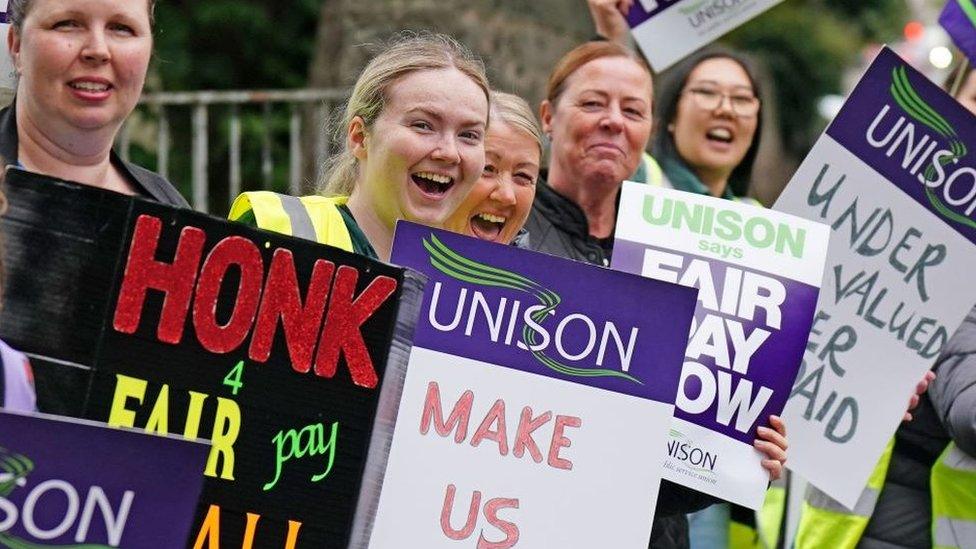
School strikes are to be suspended while a union consults its members on a new pay offer.
Council leaders had earlier agreed on a modified offer, with the promise that it would be backdated to April for all staff rather than just some.
Cosla said this was due to additional "one-off funding" of £17.2m from the Scottish government and urged Unison to call off strike action.
Unison will now put it to a vote.
Its members in schools and nurseries - including janitors and catering staff - have been involved in industrial action since September.
They are now being recommended to accept the offer, with Unison saying it has secured an additional £100m for local government workers.
The Unite and GMB trade unions had already voted to accept the previous pay offer, while Unison had argued that a better deal was possible.
The modified offer would still mean that the lowest paid staff would get a rise of about £2,000 while others get a rise worth at least 5.5%.
Council leaders have also agreed to raise the wages of the lowest paid to £15 an hour by 2026, if they can.
BBC Scotland News understands some within Unison see the extension of back pay and a clearer commitment to a living wage as significant improvements.
Unison Scotland's head of local government, Johanna Baxter, said: "The improvements put forward today help address low pay and support those in the squeezed middle.
"The commitment to delivering a minimum rate of pay of £15 per hour for all local government workers by April 2026 will go a long way to tackling low pay across the sector.
"Backdating the full offer to April this year will see an improvement for four in 10 local government workers."
The union's members took part in a three-day strike in September which saw hundreds of schools close in 24 of the country's 32 council areas.
On Wednesday, a one-day walk-out caused disruption for pupils in Glasgow, Renfrewshire, East Renfrewshire and Inverclyde.
Further action had been planned for 8 November in South Lanarkshire, Dumfries and Galloway, Edinburgh and Fife.
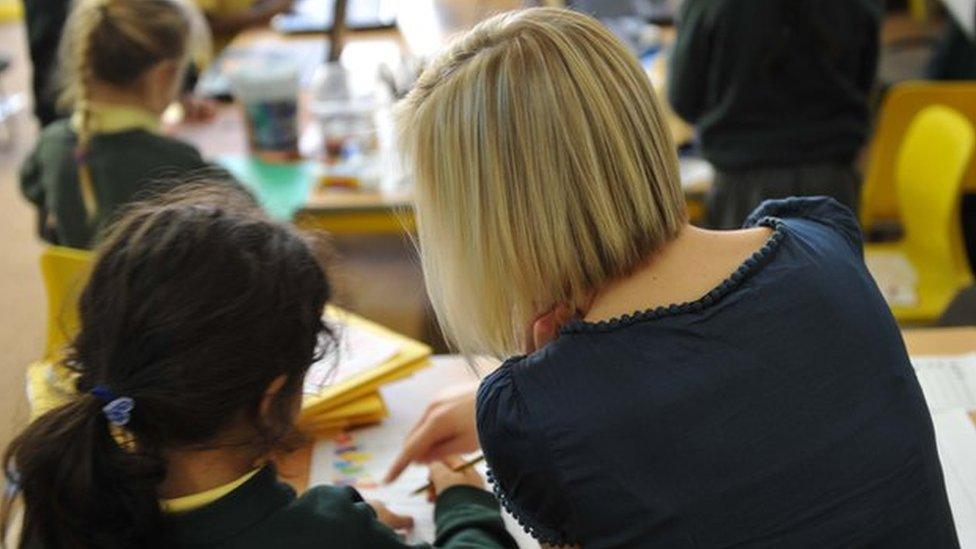
Non-teaching staff such as learning support and janitorial workers have been striking
And Unison staff in Dundee City, Stirling, Clackmannanshire, Angus and Perth and Kinross are set to walk out on 15 November.
Earlier this week Unison said "imposing" the pay offer its members rejected would intensify the dispute.
However, its said the modified offer was a significant improvement.
Staff should have received their annual pay rise in April, but it was delayed because no agreement was reached.
It is understood that councils will start the necessary processes to make sure staff get the extra money by Christmas, assuming Unison members now accept the deal.
Both the GMB and Unite said their members wanted to get their money quickly.
The GMB's senior organiser in public services, Keir Greenaway, said: "Our members accepted an offer that prioritised the lowest paid and should not have to wait any longer to receive their money. It must be with them before Christmas.
"We also welcome a renewed commitment to deliver a minimum wage of £15 an hour, but ambitions and aspirations don't pay bills.
"There is no reason to celebrate until our members get that wage instead of being promised it."
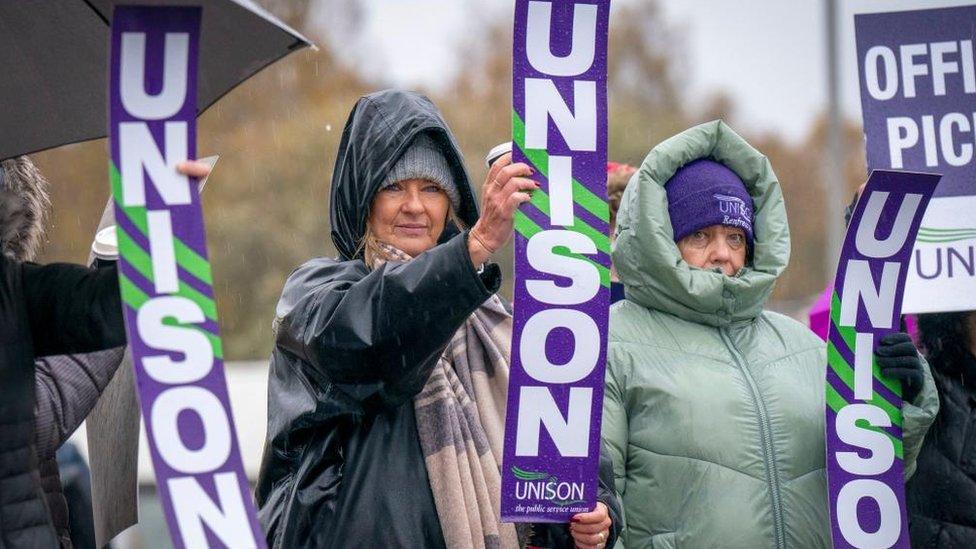
Striking schools staff gathered outside Castlehead High School in Paisley on Wednesday
Cosla said it was in a position to backdate the offer due to Scottish government funding which would "meet the extra demands of Unison".
A statement said: "Leaders recognise the importance of getting money into the pockets of our workforce as early as possible and today's decisions will hopefully make that possible.
"Given that an extremely strong offer was made to our trade unions back in April and then revised in September, it is disappointing that reaching agreement has taken so long.
"But the priority of leaders today is ensuring that nobody is left out of pocket ahead of the winter period, especially given the ongoing pressures of the cost of living crisis."
Cosla added it was fully committed to "working in partnership" with all the unions.
This dispute was over pay for the vast majority of council staff in many different jobs - including refuse collectors, administrative workers and others.
However, only school support workers were called out on strike.


The basics of this year's pay offer haven't changed. The lowest paid will get a rise of around £2,000 and others will get at least 5.5% But there are two significant changes.
The rise will be backdated to April for all staff rather than some.
Meanwhile, councils have given a clearer commitment to a big rise in the wages for the lowest paid - an aspiration that everyone will earn at least £15 an hour by 2026.
This is the second council pay strike in just over a year and the second strike within a year to cause widespread school closures.
Some staff and union officials will regret the fact that it took industrial action to secure improvements to the pay offer and would argue the money could have been found far earlier.
Related topics
- Published1 November 2023
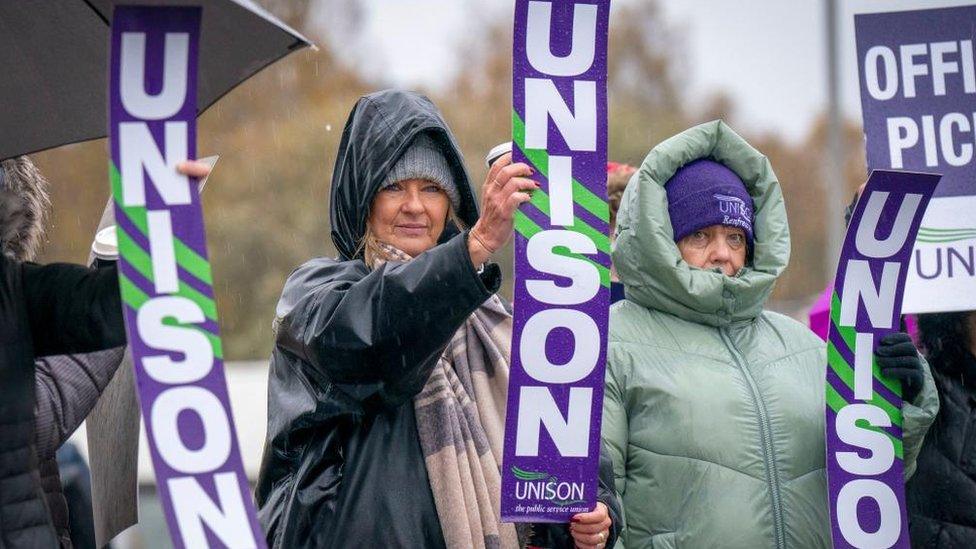
- Published1 November 2023
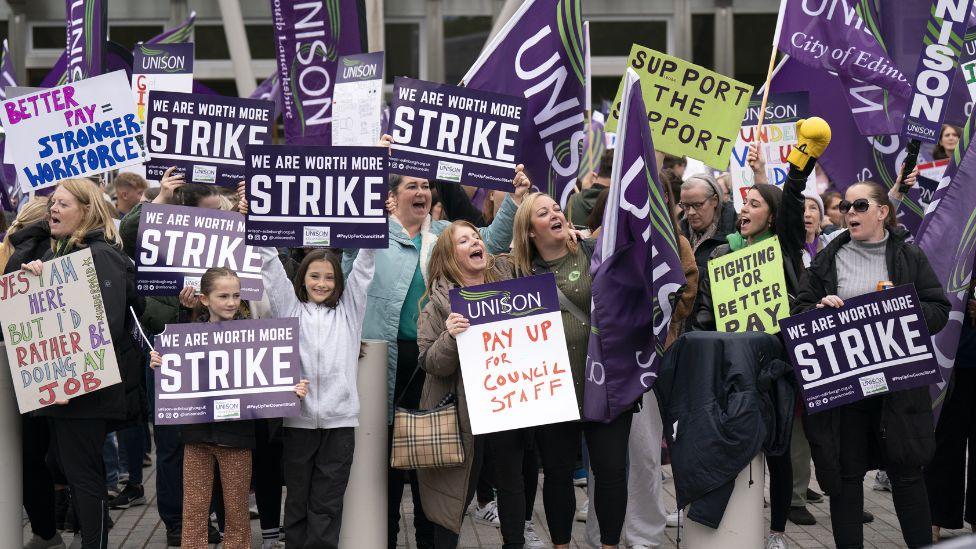
- Published18 October 2023
